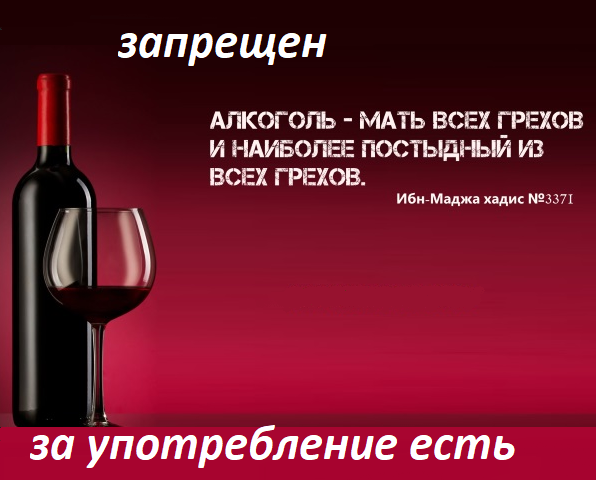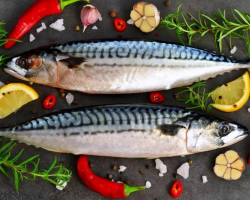Muslims are forbidden to drink alcohol. This is written in the Qur'an.
Content
- How alcohol was prohibited in Islam: Stages
- Why can't Muslims drink alcohol?
- Hadiths about the ban on alcohol in Islam
- What is the punishment for drinking alcohol in Islam?
- Is it possible to drink champagne, beer, homemade wine, kvass in Islam?
- Is it possible for non -alcoholic wine, champagne, beer to Muslims?
- Exceptions: when can Muslims drink alcohol?
- Islam and modern attitude towards alcohol among Muslims
- Video: Why did Allah forbade drinking alcohol?
- Video: Is Alcohol Haram? Where is that written? | Mufti Menk
- Video: 3 hadiths about alcohol (alcohol). Alcohol (alcohol) in Islam
It is no secret that Islam is the most strict religion, with a large number of prohibited things, including those that seem ordinary in other cultures. One of these phenomena that are familiar to people who are not professing, but prohibited sharia is alcohol. At the same time, the ban on drinking alcohol is one of the most stringent in the Islamic religion.
Read on our website another article on the topic: "Is it possible to put and dress a Christmas tree to Muslims for the New Year?". You will also learn whether Muslims can plant a Christmas tree in the courtyard of the house.
What is the reason for the restrictions on the use of alcohol in Islam, and when did they start to be carried out? This is an interesting question. We will tell you about this and many other things related to the attitude of Islam towards alcohol in this article. Read further.
How alcohol was prohibited in Islam: Stages

It is worth saying that like other restrictions that exist in many religions and cultures, which are many, a ban on the use of alcohol in Islam was not introduced immediately, but in stages. A similar method of “soft restriction” was perceived by Muslims, as God's wisdom and mercy of Allah. In more detail, each of the stages of the ban on alcohol sharia is described below.
- The first stage The prohibition of alcohol consumption in Islam was the sending of ayat (the sacred verses of the Koran) that drinking wine causes a person more harm than good. After the sending of this ayat, most of Muslim believers refused to use alcohol. However, adherents of drinking alcohol nevertheless remained, motivating their behavior by what they heard from Allah only words about the benefit of wine. A complete ban on alcohol consumption was introduced by the Qur'an in the Sura called Al-Maid. It was this Sura for the first time that called “bad deeds” such phenomena as: sacrifices, fortune telling, gambling and intoxicating drinks.
- Next step The ban on alcohol sharia was a veto for absolutely all drinks intoxicating a person. This restriction was introduced after the establishment of the rule prohibited all Muslims to make prayers in a state of intoxication.
It is worth adding that the final and complete ban on the use of alcohol by Muslims was introduced after a fight that occurred during a large feast between the Meccans and Medins. During this feast, the fucked warriors first boasted in front of each other with their exploits, and then arranged a bloody brawl.
Why can't Muslims drink alcohol?

So, why should Muslims not drink alcohol and what is this ban motivated? In fact, everything is simple.
- The main reason for the ban on drinking alcoholic beverages for Muslims is prayer is the most important prayer of Islam, which allows believers to contact Allah.
- At the same time, the implementation of prayer requires a person maximum concentration, clarity of reason and purity of intentions.
- Probably not to remind once again that intoxication does not contribute to any of the above.
Restrictions do not occur from scratch, all the more serious. This also applies to the ban on alcohol in Islam. So, the implementation of the prayer was intoxicated after one of the evening prayers, held after a big holiday, was performed by a drunken person who took part in the feast. This man was so drunk that he completely mixed up the words of prayer and read a complete nonsense, causing a big scandal. After this glaring incident, people were sent to people, who spoke approximately the following:
- “Oh you who believed! Do not get close to prayer if you are drunk until you begin to realize what you say. ”
That was the reason to forbid Muslims to drink alcoholic beverages. The reason is very logical.
Hadiths about the ban on alcohol in Islam

In the Islamic religion and culture, there is such a thing as hadith. This term denotes: action (fil), dictum (kaul), image (Vasphi) or approval (tusir) of the Prophet Muhammad. The sum of these concepts forms what is called Sunnah - a kind of authority and component of the foundations of Sharia. Of course, the hadiths and a ban on the use of alcohol for Muslims did not bypass.
- The Prophet Muhammad paid attention not to what the drink was created from, but to how strong its intoxicating properties are.
- Allah Almighty was cursed by people of several categories, to one degree or another related to intoxicating drinks.
So, such categories of people are cursed:
- Those who do alcohol
- Those who order it
- Those who use
- Those who carry
- Those who bring
- Those who pour
- Those who sell
- Those who have a profit from the sale
- Those who buy
- Those for whom they buy alcohol
Once, the prophet was asked a question about drinks made of wheat, barley or honey, which, due to fermentation, turn into alcohol. To the question, Muhammad answered the following:
- "Everything that drunk man is a hamrom, and any Hamr is prohibited."
This meant that Hamr (alcohol) itself was prohibited, while it does not matter what the drink is made of. From the represented hadiths we can see and find out that under a strict ban in Islam is not only the use of alcohol, but even its purchase and production. And the ban itself is extremely strict and even punishable.
What is the punishment for drinking alcohol in Islam?
Regardless of culture, religion and geography, any ban implies any punishment for its violation. What threatens a person for drinking alcoholic beverages in Islam?
- To begin with, it is worth saying that in Islam the use of alcohol is considered a moral crime, which in turn implies extremely serious punishments.
- So, for example, Caliph Abu Bakr (11/27/573 - 08.23.634) punished the palm or sandal with a leaf of palm sheet or sandals caught behind drinking alcohol.
- Then the punishment was tightened by the Islamic commander and the Hadistholi Ibn Umar (610 - 693) - up to eighty strokes.
- At the same time, the Shafiites refused to accept the reform of Ibn Umar, continuing to use the punishment of 20 or 40 strokes.
It is worth noting that despite the severity of the punishment, a person caught for drinking could avoid punishment. This was possible if the use was committed not voluntarily, but by force.
Is it possible to drink champagne, beer, homemade wine, kvass in Islam?

One of the most interesting issues that can arise in a person regarding the use of alcohol in Islam is associated with a variety of alcohol. For example, can Muslims use champagne, kvass, homemade wine, beer and so on?
As already written above, one of the hadiths says the prophet:
- "It does not matter what the drink is made of, what it intoxicated is important."
Therefore, drinks such as beer, wine, champagne and others are prohibited. At the same time, things are completely different with kvass, kefir, koumiss and other drinks that have natural fermentation. Since such drinks do not lead to intoxication, their use in Islam is allowed.
However, there is a condition under which drinks of natural fermentation can be prohibited: kvass, kefir, koumiss and so on. This is possible provided that the drink is transferred, because after that it begins to intoxicated.
Is it possible for non -alcoholic wine, champagne, beer to Muslims?
Another interesting moment concerns the attitude of Islam to non -alcoholic beverages, which today are also quite a lot on the market - wine, champagne wines, beer, etc. First of all, it is worth noting that no matter what an alcoholic drink is called and no matter what type the type is related to, It is like the rest of the alcohol, it is carried out by fermentation. The basis of any alcohol drink is ethyl alcohol, which leads to intoxication.
There is a hadith in the Qur'an for this case, which is said by the messenger of Allah:
- "What is drunk in large quantities is also prohibited in small."
Regarding the non -alcoholic drinks presented in the modern market, such as, for example, beer, the content of alcohol in them is reduced, however, it is still there. From all of the above, we can conclude that the so -called non -alcoholic drinks also fall under the ban in Islam. After all, it does not matter how reduced the content of alcohol in the drink, if it is there anyway.
Regarding the so-called "children's" champagne, which is just a sweet soda, spilled into a bottle similar to a champagne container, you can drink it. There is no alcohol in it.
Exceptions: when can Muslims drink alcohol?
Like punishments for violation, any ban can also have exceptions. This also applies to the use of alcoholic beverages. There really is a situation in which Allah can forgive a person for drinking alcohol. Option one: if a person was forced to drink alcohol.
There are no other situations that allow Muslims to drink alcoholic beverages. Even such a method of using alcohol as drugs is not an excuse.
Islam and modern attitude towards alcohol among Muslims
Times have the ability to change, and with them, the attitude of people to many things and rules that seemed to the norm and everyday life of their ancestors is also changing. For example, much of what seemed sinful to people, some a couple of centuries ago, today's generation is perceived as the norm. But has the attitude to alcoholic beverages in the Islamic world changed, or is it the same? What is the modern attitude towards alcohol in Muslims?
- The attitude to the ban on alcohol in Islam cannot be called unambiguous. There are many people who consider this a relic of the past.
- But at the same time, there are enough those who not only approve of the ban on alcohol for Muslims, but also calls on other cultures and countries, follow the example of Islam, struggling with alcoholism.
It remains to add that no matter how many supporters and opponents of the ban on alcohol are, there is one thing that unites these people - this is a misunderstanding of the true reason for the ban. And she is as follows:
- Anyone has the obligation to protect his health, life and intelligence to the Almighty.
- On the day of the Last Court, everyone will be responsible for the performance of this obligation. This is how Islam says.
- The one who does not agree with this statement and prohibitions on harmful substances is beyond Islam.
In this article, we spoke in detail about the attitude of the Islamic religion towards alcohol, its ban, the reasons for this and the punishments for use. In conclusion, it remains only to quote the prophet Muhammad:

Alcoholism always begins with small doses. Therefore, it is better not to drink at all, so as not to succumb to temptation and not to gain problems in the future and not to defeat the Almighty.
Video: Why did Allah forbade drinking alcohol?
Video: Is Alcohol Haram? Where is that written? | Mufti Menk
Video: 3 hadiths about alcohol (alcohol). Alcohol (alcohol) in Islam
Read on the topic:







